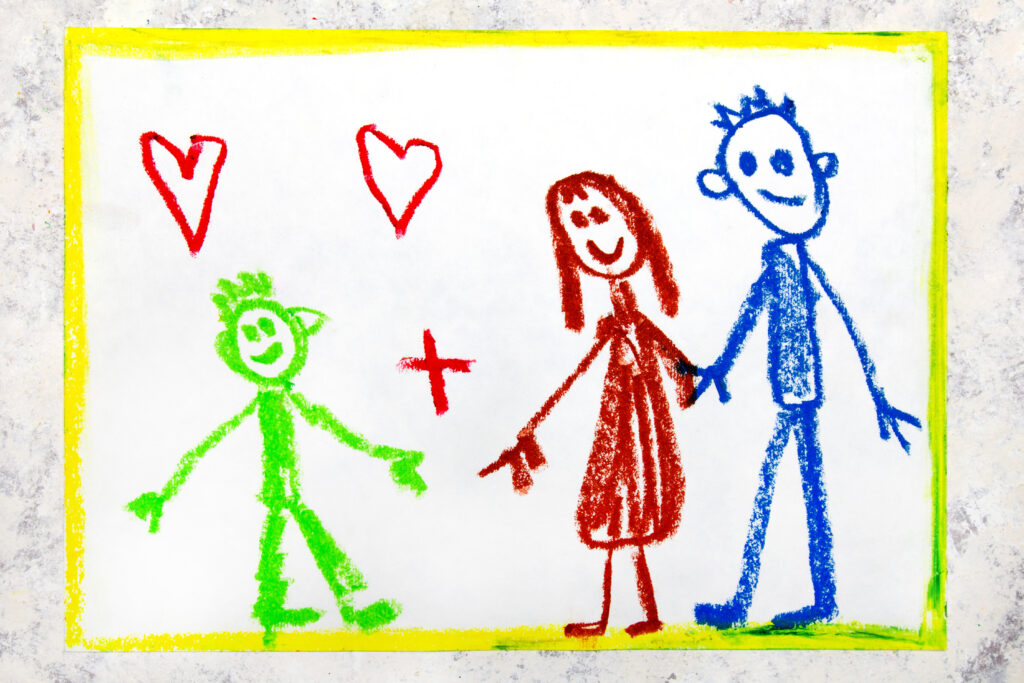The bond between a mother and child often feels like an intrinsic truth woven from the first flutter of awareness. Even before birth, attachment bonds are formed as a mother anticipates and acknowledges her baby. Many of these early interactions lay the foundation for secure attachment—a fundamental of love and care that is vital for a child’s healthy development. But what happens when the expected path is altered? When a mother faces the difficult decision of placing her child for adoption or when a child enters the foster care system, the delicate foundation of early attachment can be disrupted. These are not easy choices, and their impact on the attachment experiences of both mother and child is profound.
Through research, we are now learning and understanding that secure attachment is far more than just a comforting feeling; it’s a foundational element that profoundly shapes a child’s emotional, social, and cognitive development. Consistent love, care, and responsiveness bring long-lasting benefits, not forgetting the impact on the mother’s attachment bonds. Fortunately, our understanding of attachment in adoption and foster care has evolved significantly. We are actively moving away from judgmental perspectives and trying to educate others to embrace a more compassionate and supportive understanding. We now recognize the immense courage and love that often underlies a parent’s decision to place a child for adoption. Adoption is rarely a choice made lightly and usually stems from a deep desire to provide the best possible future for their child.
As an adoptee, I can attest to the profound impact of attachment on one’s life. The critical process of nurturing and supporting healthy attachment is not just a professional interest; it’s a deeply personal one. Building a sense of belonging and family can have its unique complexities. Although it is possible to cultivate a secure and loving environment, it is also possible to reap the significant benefits outlined above.
Research suggests adopted children are at higher risk for mental health issues due to potential early attachment disruptions, utilizing outpatient mental health services 2 to 5 times more often than non-adopted children (1). This statistic highlights the critical need to understand and address the potential impact of early attachment disruptions on adoptees.
The Center for Adoption Support and Education (C.A.S.E.) identifies the following Seven Core Issues in Adoption and Permanency, which can significantly affect an adoptee’s well-being and their ability to form secure attachments:
- Loss: The inherent loss of the birth family.
- Rejection: Feelings of being unwanted or not good enough.
- Guilt and Shame: Feeling responsible for the adoption or feeling different.
- Grief: Grieving the loss of the birth family and the life that could have been.
- Identity: Struggling with who they are and where they belong.
- Intimacy: Difficulty forming close, trusting relationships.
- Mastery/Control: Feeling a lack of control over their life story.
The good news is that many therapeutic approaches are designed to support rebuilding attachment and cultivating a strong sense of family belonging. Through collaborative work, we can create a safe, secure, and loving home where everyone feels a true sense of belonging. Some of these approaches may include:
● Attachment-Based Therapy: Directly builds secure child-caregiver bonds.
● Dyadic Developmental Psychotherapy (DDP): Trauma-focused therapy emphasizing co-regulation and relational repair for children with attachment issues.
● Theraplay: Uses play to boost attachment, self-esteem, trust, and engagement.
● Attachment, Regulation, and Competency (ARC): Framework addressing caregiver attunement, consistency, regulation, self-concept, trauma integration, caregiver self-care, and social engagement.
● Trust-Based Relational Intervention (TBRI): Trauma-informed, attachment-based intervention using Empowering, Connecting, and Correcting Principles for vulnerable children.
●
The journey of attachment in adoption and foster care may have unique complexities, but the fundamental need for connection remains the same. By continuing to learn, adapt, and prioritize the mental well-being of both mothers and adoptees – and by embracing the power of collaborative therapeutic support and utilizing a range of effective interventions – we can help weave new threads of secure attachment, fostering healing and building stronger, more loving futures where a deep sense of family belonging and all the associated benefits can flourish for all.
References
1-(Howard, Smith & Ryan, 2004; Keyes, Sharma, Elkins, Iacono & McGue, 2008; McRoy, Grotevant & Zurcher, 1988).
If you or anyone you know has experienced adoption please share this article and reach out to me if you feel you need a safe space to process your experience.
Gabriella Arcidiacono, MA, LPC






